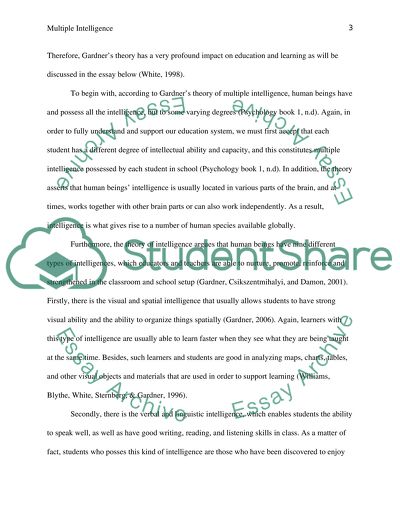Cite this document
(“Multiple Intelligence Research Paper Example | Topics and Well Written Essays - 1000 words”, n.d.)
Retrieved from https://studentshare.org/psychology/1632907-multiple-intelligence
Retrieved from https://studentshare.org/psychology/1632907-multiple-intelligence
(Multiple Intelligence Research Paper Example | Topics and Well Written Essays - 1000 Words)
https://studentshare.org/psychology/1632907-multiple-intelligence.
https://studentshare.org/psychology/1632907-multiple-intelligence.
“Multiple Intelligence Research Paper Example | Topics and Well Written Essays - 1000 Words”, n.d. https://studentshare.org/psychology/1632907-multiple-intelligence.


